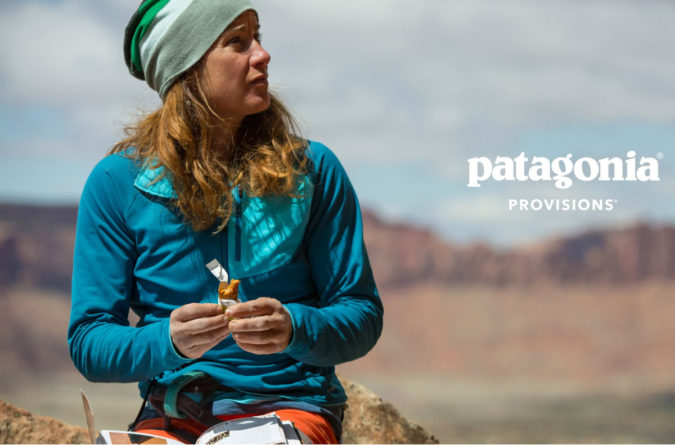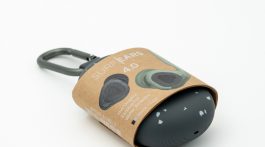This week Patagonia launched Patagonia Provisions, the vehicle to launch the brands seemingly left field entry into the food market. Their first foray into the food category includes breakfasts, fruit and almond bars, soups, salmon and dry goods.
The brands founder, Yvon Chouinard explains.
“With Patagonia Provisions, our goals are the same as with everything we do: We aim to make the best product, cause no unnecessary harm, and perhaps most important, inspire solutions to the environmental crisis.”
So why food? The passionate environmentalist elaborates on the move.
“The tradition and culture of food have always been important to us at Patagonia. On our many travels, the meals—cedar-planked salmon with First Nations friends in BC, tsampa in yak-hair tents in Tibet, asado and chimichurri with Patagonian gauchos—become a vital part of the experience. What we eat does more than just fill our stomachs and nourish our bodies; good food lifts our spirits and helps us understand the world a little better”.
“So it only makes sense that we’d want to share some of our favorite food with our customers. But that’s just the beginning; we also believe there is great opportunity—and an urgent need—for positive change in the food industry”.
“And nowhere is the crisis more pressing than in the food industry. Today, modern technology, chemistry and transportation combine to put more distance between people and their food than ever before. We harvest salmon indiscriminately or farm them in open-water feedlots, putting wild salmon in peril. We overgraze our prairies, fill our livestock with antibiotics, and drain fossil aquifers to water unsustainable crops. Chemicals reign supreme to maximize production, and the unknown impact of genetically modified organisms hovers over the entire industry. In short, our food chain is broken”.
“Patagonia Provisions is about finding solutions to repair the chain. We’ll start, as we always do, by rolling up our sleeves and learning everything we can about the sourcing of each product. In some cases, we’ll adopt the best practices already in existence; in others, we’ll have to find new ways of doing things, which, as we might have guessed, frequently end up being the old ways”.
“In the coming months and years, we’ll offer a growing selection of foods that address environmental issues, and continue to encourage support of local food producers. We’ll keep working with our favorite chefs to create the kind of healthy, nutritious food we like to eat on the trail or water and share with friends at home. If we do our job, our success can help establish a model for a new kind of food chain, one where we, as the Zen master might say, “turn around and take a step forward.”
“The food industry is one of the biggest industries on earth and a massive contributor to global warming. Most of our food is produced using methods that reduce biodiversity, decimate soil and contribute to climate change,” notes Birgit Cameron, sr. director for Patagonia Provisions. “Yet food done differently holds a special potential not only to reduce our negative impacts on the planet – but to reverse them entirely. That’s why Patagonia started a food business and we are thrilled to bring this message to Australia. We feel that the Australian market is ripe for change and very open and receiving of our message.”
You can look over their products HERE

_____________________________________________________________________________________
Inside Patagonia.
Patagonia began life in 1973, a thousand feet up, clinging to the side of El Capitan.
It was there that Patagonia founder, Yvon Chouinard, noticed the once-pristine face of the mountain was being pockmarked by thousands of steel pitons being driven into it – the very same steel pitons he was manufacturing in his tin shed in Ventura. Here was a mountain eternal and grand that had stood staunch for 100 million years, a mountain that should last the best part of forever, being flaked away into gravel. The symbolism of the moment set Yvon upon a lifelong mission to prove business can indeed have a simpatico relationship with the natural world.
In the years since, Patagonia has evolved into an enterprise with a wholly unique philosophy, a way of doing things, a way to see the world and our place in it. Today Patagonia is still up on the mountain, but also lives in the oceans and forests, on trails and beaches, all the places where people seek adventure and discovery.
Patagonia gear is designed for exploring, embracing and challenging the frontiers. It’s gear designed for simplicity and utility, gear designed to last, and gear accountable to the environment it’s made for.
The love of a wild and beautiful world comes with an obligation to preserve its wilderness and beauty, and Patagonia is committed to this. It always has been. We donate our time, energy and 1% of all sales to like-minded, grassroots environmental groups who are out there working to keep the natural wonder in the world.





